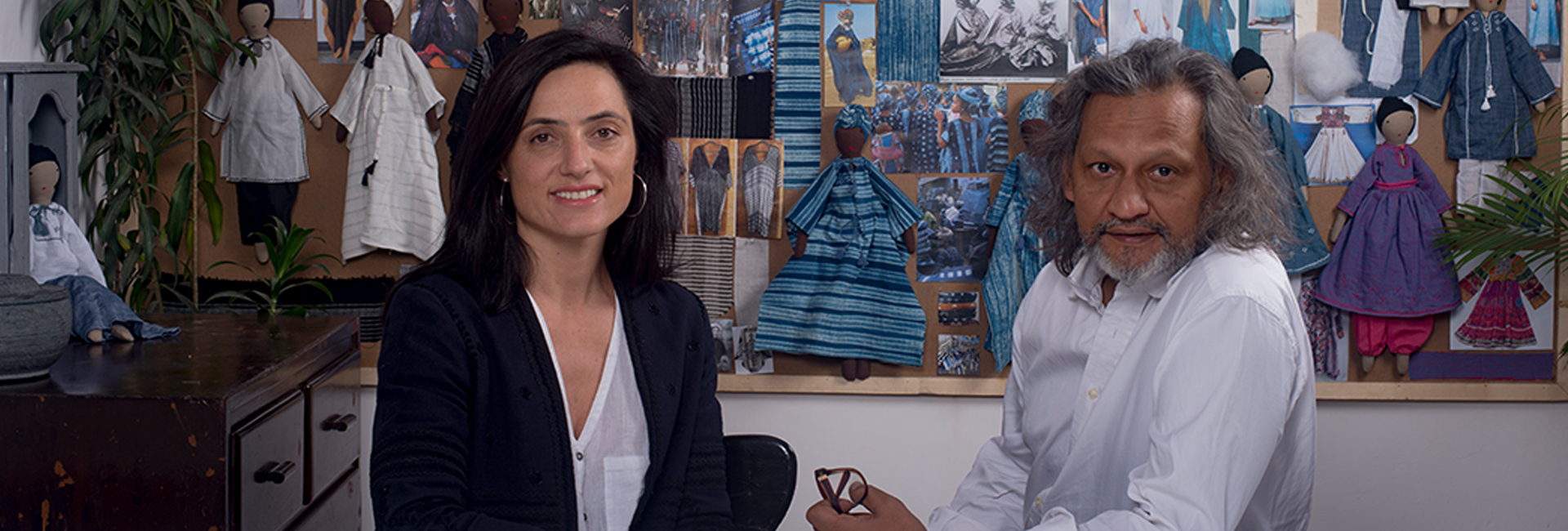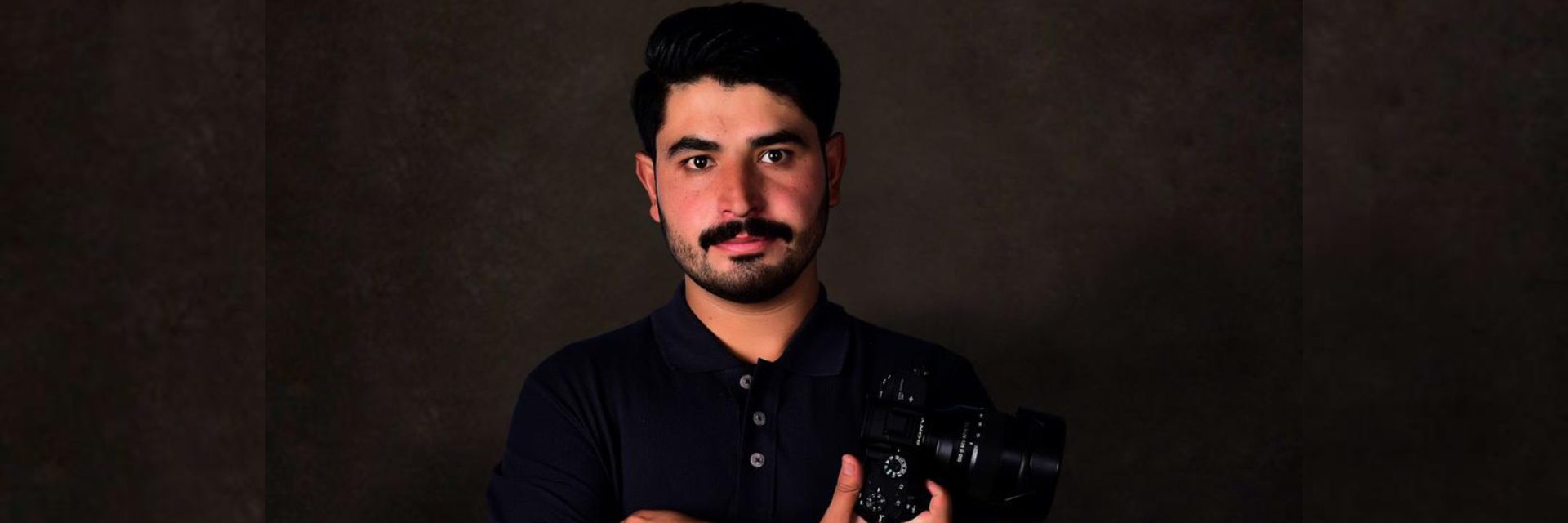(January 19, 2023) One of the crowded alleys in Malviya Nagar takes you to the workshop of Silaiwali – a place that’s a world of its own for the many Hazara women who fled the atrocities of the Taliban to make a temporary home in the heart of New Delhi. Sitting among a handful of benches and chairs with the whirring of the sewing machines in the background, one can see many Afghan refugee women busy sewing and crocheting a pile of upcycled fabric into beautiful dolls. It’s been four years since the social enterprise Silaiwali came into existence, and till now has given employment to more than 120 Afghan refugee women.
The brainchild of a former visual journalist Bishwadeep Moitra and his French wife Iris Strill, a product designer, Silaiwali upcycles waste fabric generated from apparel scraps to create handcrafted decorations by Afghan woman refugees in India. “Ecology and solidarity – our mission is to bring these two together. Our motto is A Stitch Against Waste. A Stitch for Freedom. We are not just making an effort to save the environment from textile waste but also helping marginalised artisans live a dignified life,” Bishwadeep tells Global Indian.
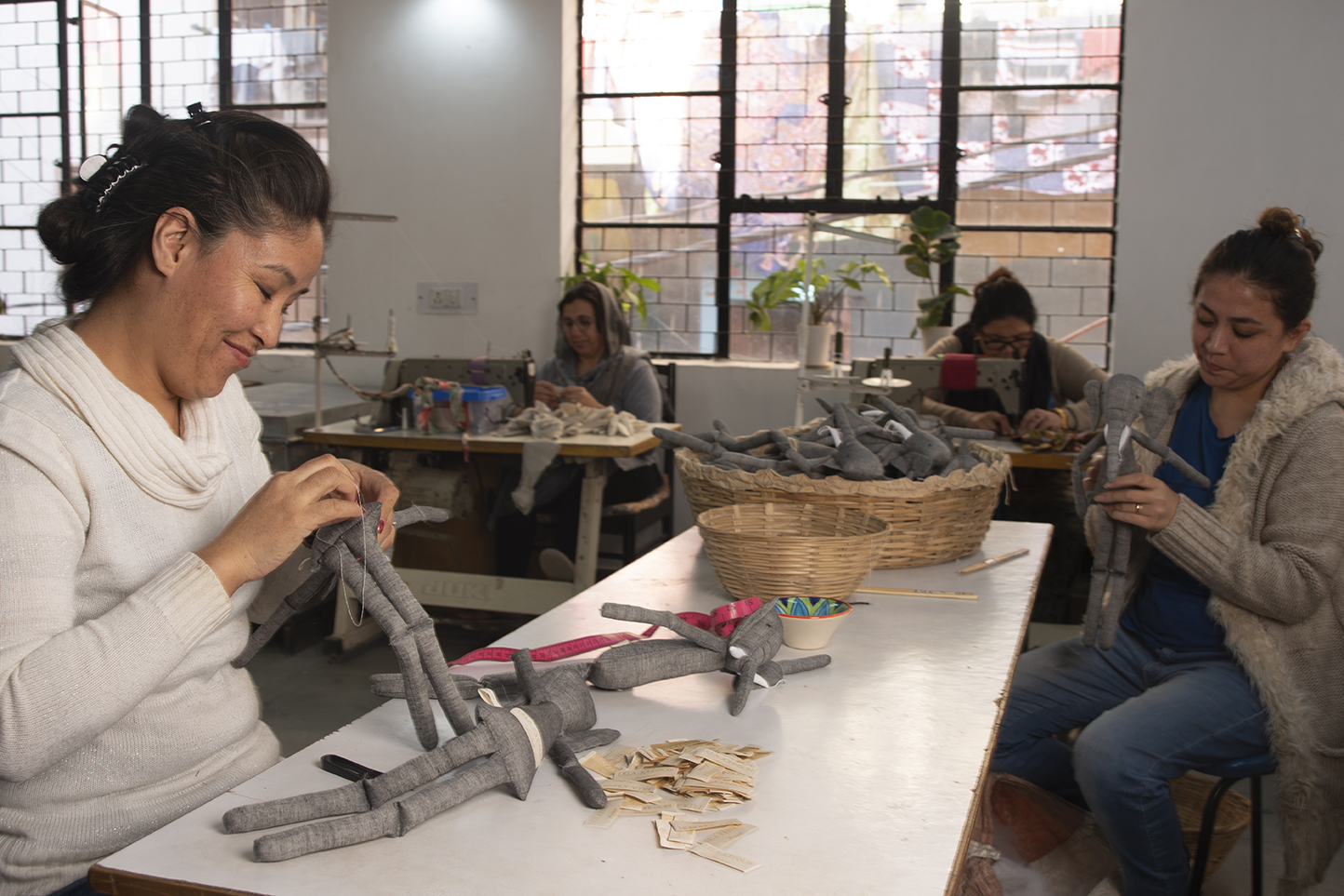
Afghan refugee women at Silaiwali workshop
Since the late 1970s, India has given shelter to Afghan refugees, and each year, more Afghanis make their way to New Delhi in the hope of a better life. Currently home to around 30,000 Afghan refugees, South Delhi is bustling with the marginalised community that’s looking to start afresh in a new country. And Silaiwali is helping Afghan refugee women give another shot at life.
“Coming from a conservative society, these women mostly never left their homes before stepping into Delhi. But now they want to help their kids have a better life,” adds Bishwadeep. Since Malviya Nagar is the hub for many of these refugees, Bishwadeep Moitra and Iris knew they had to take their workshop to them. In no time, their craft has found an audience in France, Korea, Japan, Germany, and other parts of the world. So much so that their skills caught the eye of the French luxury fashion house Chloé, who collaborated with Silaiwali for an exclusive range of rag dolls. “Hazara women are known for their embroidery skills, and now they are using the same craft for a wider audience, and it’s helping them live a dignified life in India,” adds Bishwadeep, who decided to start the venture in 2018 with his wife, after quitting a two-decade-long career in media.
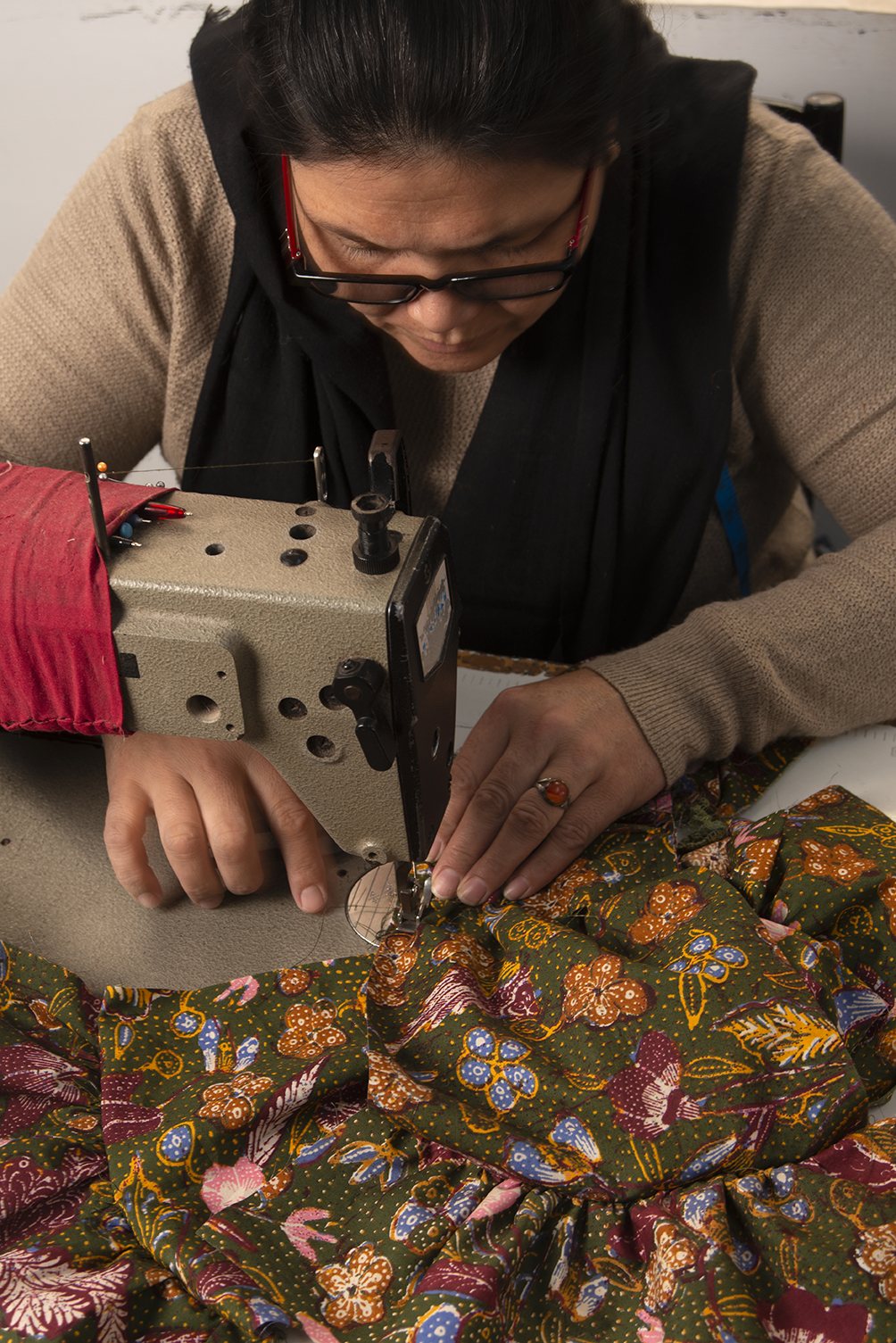
Journalist-turned-entrepreneur
Having arrived in Delhi as a teenager from Ludhiana where his dad was posted, he never got the chance to complete his graduation owing to the violence that erupted in the capital during the Sikh riots of 1984. Though he did join an engineering course for a year, he gave up soon to start working in a printing unit. Designing was something that intrigued Bishwadeep Moitra, so he ended up joining India Today as a graphic designer in the early 90s, and later became one of the founding members of Outlook magazine during its launch in 1995. In the coming years, he rose to the ranks of Executive Editor. “For 21 years, I designed the cover of Outlook magazine and did stories. It was a free-thinking magazine, and I loved my work.” However, in 2016, he decided to hang up his boots in the world of full-time journalism as boredom had slowly started crawling into the daily work. “I had done whatever I had to do.”
View this post on Instagram
It was during his time in Outlook that he met his now-wife Iris at Sivananda Yoga Centre in Delhi in 2006. “Like most foreigners, she was interested in yoga, and that’s how we first met at the yoga studio,” laughs Bishwadeep, adding that she has been visiting India since 1999, and has years of experience in crafts and fashion, “training artisans in making design-oriented products.” It was during her long years of working in India as a consultant to fashion brands that she came across the problem of textile waste and realised upcycling was the solution. “Moreover, she had worked with Afghan refugee women who were a part of United Nations High Commission for Refugees (UNHCR) livelihood initiatives. That’s how the idea of working with refugees struck us,” reveals Bishwadeep, who has been married to Iris for 13 years now.
View this post on Instagram
The dolls that make Silaiwali unique
The idea of integrating upcycling with empowering skilled Afghan refugee women gave birth to Silaiwali – a social enterprise with a purpose, and also the concept of selling rag dolls. “Growing up, almost every individual at some time has played with a rag doll. Many people who are now parents played with one, while many kids made one as a part of crafts class or DIY programs.” The hand-made dolls are a far cry from the plastic ones available in the market and provide an emotional connection along with celebrating cultural diversity. “Our dolls are for an audience that’s conscious about sustainability, peace, equality, and the environment. We wanted to sell a product that has a back story to tell. We are using waste material as the fabric for the dolls which are made by skilled marginalised women who ran away from terrorism, and the income is helping them sustain in a new country.”
View this post on Instagram
While the very first year got Silaiwali a huge order from a US fashion brand COS to make 50,000 key chains using waste fabric, making Afghan women work in a structured environment was one of their biggest challenges. “Since they come from a conservative society where their skills were never used commercially before, getting them to work in professional production was demanding. The products are made for high-concept stores across Europe, they demand high quality of production, and so everything has to be perfect.” However, Bishwadeep is grateful that though the women are not trained, they are doing really well and their work is loved by all.
Empowering Afghan refugee women
Leaving the comfort of their country, they have moved to India in search of a better life, and hence, winning their trust was the first thing for Iris and Bishwadeep Moitra. “We had to make them feel safe. That was the first step. Even our workshop is like a zenana that provides them a haven.” He credits Iris for her charm and personality which played a factor in making these women feel at home. “The way she handled them as a fellow worker and not an owner, made her stand apart. She is a Westerner and believes in treating the worker with dignity. She never misses a chance to ask the women for an opinion on the product as their input is equally vital.” While Bishwadeep looks into the administration, marketing, communication, packaging, and graphic designing part, Iris’ core focus is the product.
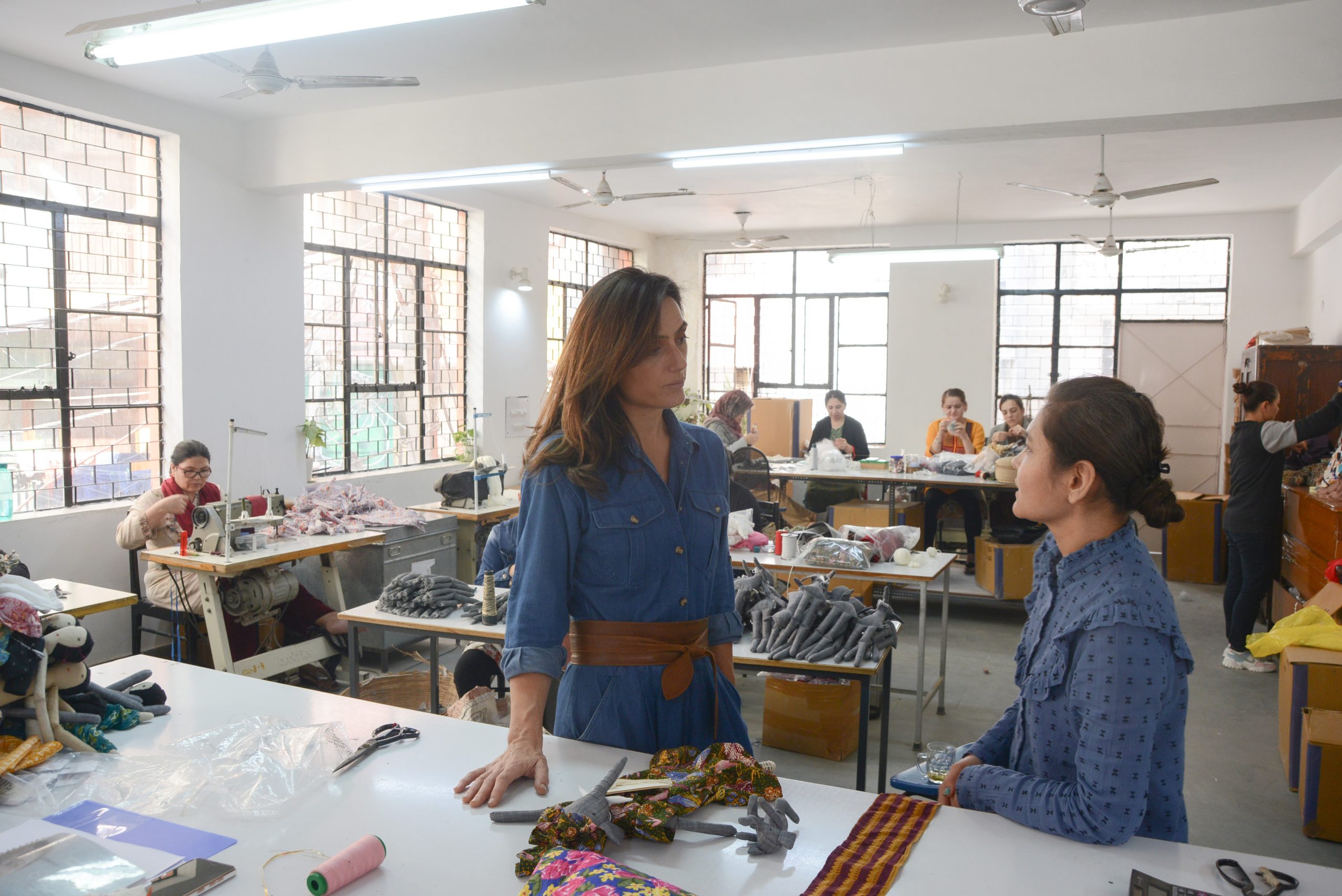
Iris Strill with an Afghan refugee woman at Silaiwali workshop
Currently, 70 Afghan refugee women work with Silaiwali, a number that has gone down drastically from 120 last year. “For most Afghan refugees, India is a transit as they wish to migrate to Australia, Canada, or the US. Last year, Canada invited 1.4 million refugees, and 60 women from Silaiwali, along with their families migrated to Canada. It was heartbreaking to lose our artisans but it’s a big gain for them as they get citizenship rights in those countries.” Working with Silaiwali has empowered these refugee women who have now become key decision makers in their otherwise patriarchal families. “They are earning a livelihood from the skills they traditionally have. It has instilled a sense of confidence in them and now moving to a new country, they are ready to take on work and new challenges with more gusto and self-awareness of their skillset.”
The path ahead
Over the last few years, Silaiwali has found collaboration with big brands like Uniqlo, Chloé, and Ulla Johnson. “In 2022, we partnered with Uniqlo, and had 50 pop-ups around the world including Milan, Paris, and London,” says the 57-year-old who bid adieu to journalism to dive into entrepreneurship. “Working on a complex business right now, journalism seemed like a walk in the park,” he laughs. From manufacturing to selling to working with the UN, he calls the work “wheel within wheels.” When Bishwadeep Moitra began, he had no idea about export or how to run a business. For him, the last four years have been a learning curve. Though Silaiwali is bootstrapped, he has plans of scaling up. “We have only tapped into 2-3 percent of the world market. We are keen to go much bigger shortly through social media and exhibitions.”
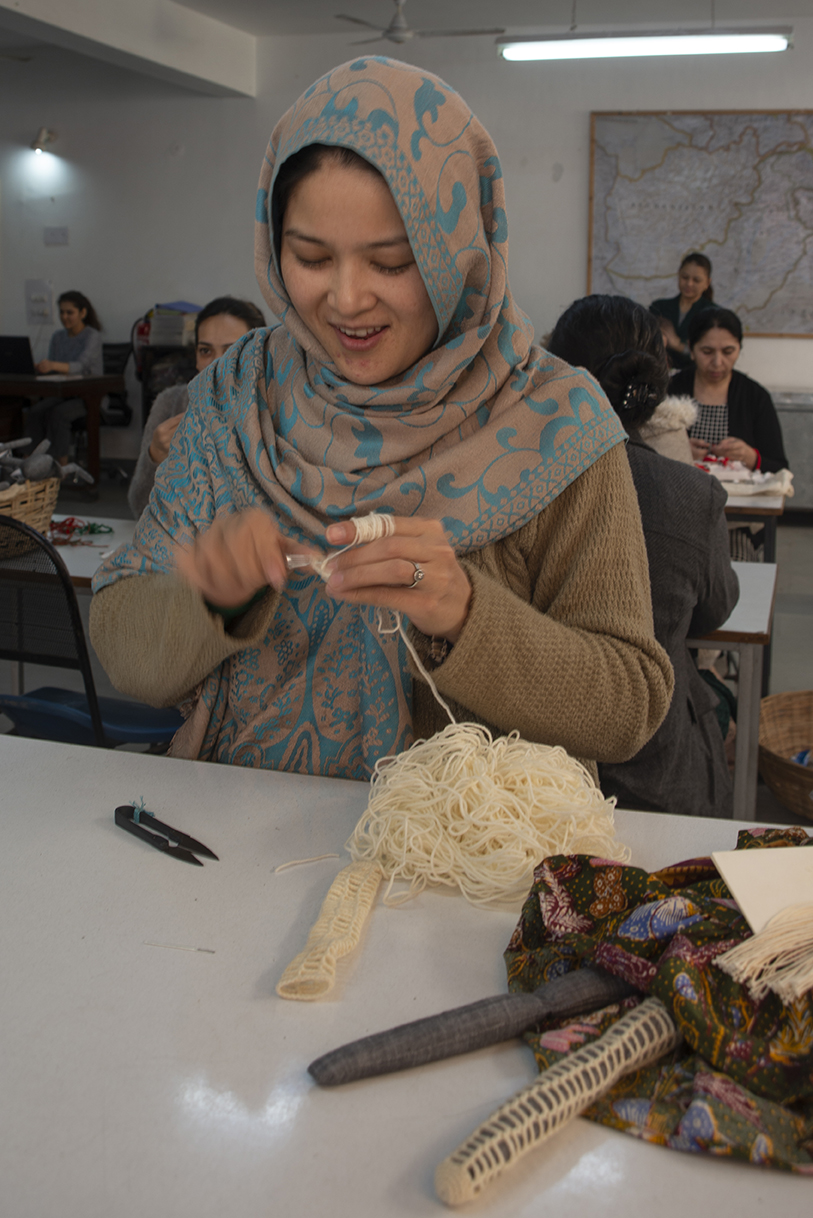
Silaiwali employs Afghan refugee women
After the success of the India chapter of Silawali, Bishwadeep and Iris wish to replicate the model in countries like France. “The concept of upcycling and empowering marginalised communities of the region remains the blueprint for every chapter.” With many of their artisans having moved to Canada, Bishwadeep Moitra wants to start one chapter in Montreal. “The trained Afghan women who have now migrated to Canada can restart what they were doing.”
Also Read: Antara and Anurup: Winning hearts with The Pink Engine and Sunday Class
